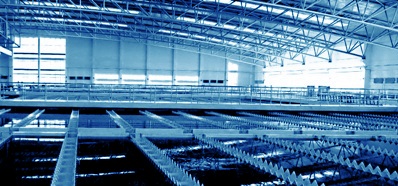Modular Process Control Systems

Block-modular wastewater treatment station

Block-modular sewage and wastewater treatment station
CWWTP MBR – блочно модульная система очистки сточных вод MBR
| Name | Indicator | Note |
| CWWTP MBR 1/130 | 1 – 30m3/h, primary sedimentation 1 – 50 m3, contact oxidation tank 1 -130 m3 |
Advantages of block-modular stations “KOS”
The advantages of using block-modular stations like “KOS” include:
- High degree of purification;
- Compliance with environmental standards;
- Flexibility and modularity, allowing the system to be adapted to various wastewater flows.
These modern solutions represent innovative technologies for water resource treatment, providing a high level of purification, compliance with standards, and effective interaction with different wastewater streams. This makes them crucial tools for maintaining ecological stability and conserving water resources in the future.
If you need a sewage and wastewater biological treatment station, contact “LET” company ☎ +7 (495) 232-00-66.



